Senior Cycle
© The Examcraft Group | Reproduction not permitted

"Education is freedom"


© The Examcraft Group | Reproduction not permitted

"Education is freedom"

- Paulo Freire
The Leaving Certificate is about to undergo significant reform, which will impact you if you are starting 5th year in September


Senior cycle is designed to help you develop key competencies that will help you to grow and thrive intellectually, personally, socially, morally, and physically. As you develop the key competencies required at senior cycle, you will enhance your ability to understand and learn, navigate social opportunities and challenges, transition smoothly from school to further education or the workforce, and confidently embrace adult life. The competencies are:
• Thinking and solving problems
• Being creative
• Communicating
• Working with others
• Participating in society
• Cultivating wellbeing
• Managing learning and self
Integrated within all of these competencies are the fundamental competencies of literacy and numeracy.
There are three elements to a competency:
• KNOWLEDGE • SKILLS • VALUES AND DISPOSITIONS


The senior cycle is designed so that you will develop the knowledge, skills, values and dispositions associated with each competency across all your subjects, helping you to become an enriched, engaged and competent learner. This will ensure that you and your teachers make meaningful connections between and across different areas of learning, thus improving and embedding your overall learning.
Each revised subject will incorporate Additional Assessment Components in addition to the final written exam. It is envisaged that at least 40% of the total marks will be awarded for the additional assessment components and these will be externally assessed by the State Examinations Commission. However, this may change and your teacher will advise you on the weighting of assessment components for each revised subject specification.
Additional assessment components are being introduced to reduce the pressure associated with final written exams and provide a more comprehensive evaluation of your skills and competencies.
Examples of additional assessment components include:




RESEARCH PROJECTS ORAL ASSESSMENTS PORTFOLIOS



CREATION OF ARTIFACTS FIELD STUDIES PRACTICAL INVESTIGATIONS
and many subjects already have additional assessment components, i.e.


ORALS FOR ALL THE LANGUAGES PROJECTS FOR HISTORY


but going forward these additional assessment elements will be part of all revised subjects.

Education is the most powerful weapon which you can use to change the world.

- Nelson Mandela (1919-2013)
South African revolutionary anti-apartheid political leader.
South Africa’s first Black head of state and president from 1994-1999.
The ‘CAO’ form is a very important application form for any 6th year student who wishes to attend third level in Ireland. The CAO stands for the Central Applications Office. It processes application forms for undergraduate courses in Irish Higher Education Institutions. It is important to communicate with the guidance counsellors in your school to receive notifications of dates for submissions, etc.

Register with the CAO before 5pm on 1 February.



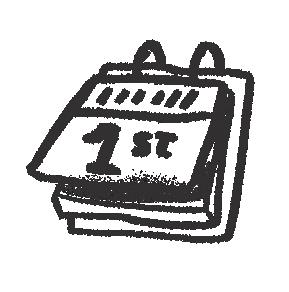

Edit your application using the ‘My Application’ facility.

Confirm your Level 8 and Level 7/6 courses using the ‘My Application‘ facility before 1 February at 5pm to avoid restrictions.
Remember to place your course choices in genuine order of preference.

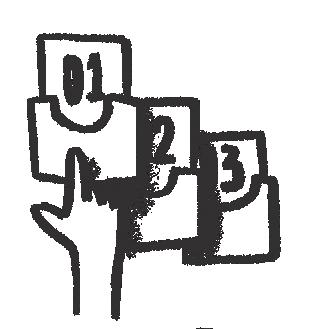
Round One Offers are issued following the release of the Leaving Certificate results. If you are accepting an offer, you must do so by the reply date on the offer notification. Other categories of applicant may receive offer notifications before this time.

Applicants who do not receive a Round One Offer will receive a Statement of Application email. Please follow the instructions in this email and inform the CAO of any errors or omissions.
Note: Visit www.cao.ie to make

Provide supplementary information, and any documents required.

Use the free Change of Mind facility from 5 May to 1 July at 5pm to make changes to your application - restrictions apply.



Carefully check the Statement of Application Record when it is sent to you in May and inform the CAO of any errors or omissions immediately.
Offers are issued to eligible applicants until the offer season closes, or until all of the places have been filled, whichever comes first.

At senior cycle, it is important to be aware of the points calculation grid so that you are aware of what points you are capable of achieving. This will enable you to set realistic and achievable goals to successfully get you a place in your chosen college course.
1. 25 bonus points are awarded for higher level Mathematics for H6 grades and above, i.e., if you receive a H6 grade, an additional 25 points will be added to the 46 points already awarded for a H6 grade, i.e., higher level Mathematics now carries a points score of 71.
2. The bonus points are included in the overall points calculation only when Mathematics is one of your six best subjects following the addition of the bonus.
3. The six best results, in recognised subjects, in one Leaving Certificate examination are counted for points computation.
4. One sitting only of the Leaving Certificate examination is counted for points purposes.
5. It is important to check the admissions office of individual third level colleges to get a full understanding of their course requirements beyond the points required.
6. You must first meet the minimum entry requirements in order to be considered for entry to a course.
7. Points for Foundation Level are only awarded by certain third level colleges; check with individual third level colleges to see if they are accepted.
8. All third level colleges award points for results in LCVP Link Modules, in place of a sixth Leaving Certificate subject.
9. Not all third level colleges count LCVP as meeting eligibility requirements in regard to passing subjects, so you need to check individual college requirements.
The QQI (Quality and Qualifications Ireland) have developed a system of ten levels used to describe the Irish qualifications system. This ten-level system is known as the National Framework of Qualifications.
It is important to be familiar with this qualification framework so that you can understand the different types of courses you may be interested in pursuing.

Make time to complete your own research or talk to a guidance counsellor about all of your options within the QQI Framework.
The main education and training options available to Senior Cycle students after leaving school are:

Higher Education Courses (the CAO application)

State Training (e.g. fishing or agriculture)

Further Education (PLCs, Local Education Training Boards)

Industry Supported Programmes

Public Services (Gardaí, Defence Forces etc.)

Studying Abroad


It is important to create a study plan at the beginning of the school year to keep you motivated and to avoid feeling stressed about your workload. You will now be walked through a three-part study system.
Let’s reflect on how you planned your study in the past and use it to identify improvements you can make in senior cycle.
Did you plan your study well in Junior Cycle?
How could you plan your study better now?
At senior cycle, it is important to use your independence and responsibility to ensure you are in control of your learning.
Ensure that you create a study plan that suits YOU. Make a new one each week as each week will vary in both your school and home life.
To download a Study Planner for each week, just go to

Use this template to write out a planner for next week in school. Be sure to include any school events, including any homework, practicals or assessments. Also include details of your plans each evening – it is important to have a healthy balance between school work, exercise and rest!

Use this template for each subject you are studying. Use it to take note of each topic within the subject that you must study and record each of your reviews of each of the topics on the Subject Revision Planner.
To download a Subject Revision Planner for each subject, just go to

Here are some simple techniques for keeping an effective study plan ...
• Use the Subject Revision Planner for each of your subjects.
• Divide each subject into key topics.
• Indicate how important each topic is for your assessment.
• Record when you create your study notes and complete POKER (we will examine this in detail on the next page).
• Tick the box when you have completed each review.
Generally speaking, most people find it hard to remember what they read in a book. For this reason, they take notes. Notes can be in many different forms. All these are based on knowing that we learn best using association and imagination. If you don’t know what each of these techniques are, do some research on them - you will find that they will help your study.






Tackle any subject easily
This simple system can be followed to break each subject down into bite-sized chunks called topics.

P O K E R





What do I already know about this topic? What is the structure of this topic? What are the subheadings? Highlight the keywords for the topic. Create a onepage summary that uses the headings and keywords. What do you now know about the topic?
By creating a study plan and regularly revising, you have made a great start. By devising your own notes and study techniques, you will have a much greater knowledge of your subject areas. However, there is one final step in the journey, and this is review!


Did you ever wonder why you could remember your phone number or date of birth so easily but then struggle to remember what you learned in Geography last class or the name of someone you met last week?
The truth is that you need to regularly review your notes in order for the information to go into your long-term memory.
Ideally, you should review your notes …
Now that you have created your notes in the form of a one-page summary, you have this knowledge of the topic in your short-term memory.
BUT it won’t be there forever, it’s up to you to review it and make sure the knowledge goes into your long-term memory.
Use the Subject Revision Planner to record each review. You will be surprised at the difference it makes!


is our ability to choose one thought over another.
- William James (1842 – 1910)
One of America’s most influential philosophers and labelled by others as the ‘Father of American Psychology’
Stress is a common feature of life at senior cycle. We will examine the normality of experiencing stress and dealing with stress under the following headings:
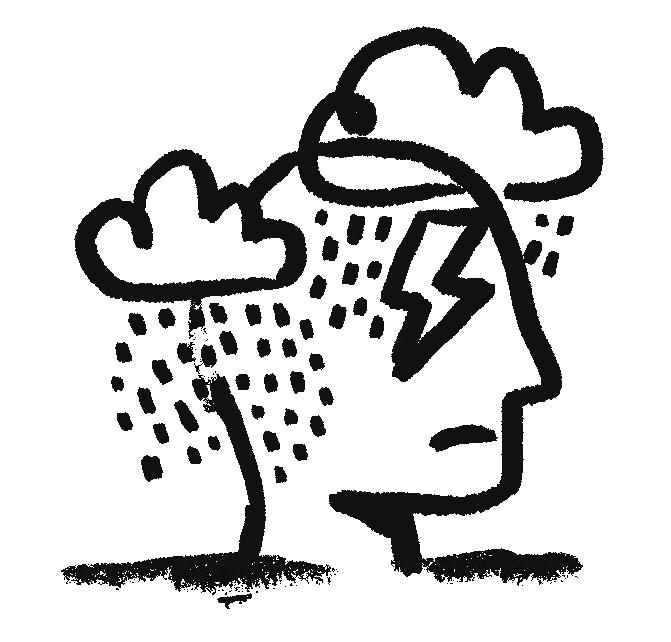
Learning how to manage stress
Maintaining a healthy balance
Healthy activities for everyday use

Stress can be defined as a mismatch between the demands placed on us and our ability to cope with these demands. People feel stress for lots of different reasons. Can you name the major triggers for stress in your life?
People experience a variety of feelings when they are stressed. What feelings do you associate with stress?
Stress occurs when your body responds to certain events (e.g. exams) by activating the nervous system and specific hormones. This speeds up your heart rate, breathing rate, blood pressure, and metabolism. Believe it or not, your body’s stress response improves your ability to perform well under pressure.
Learning how to deal with stress is known as stress management. There are two key elements to stress management.

Recognise when you are stressed.

Take action to reduce triggers for stress in your life. 1. 2.
Once you recognise the cause of stress, it is much easier to find solutions!
It is important to remember that your life isn’t perfect and that stress will be a regular feature. Praise yourself for times when you bounced back from a challenging time and adopted a positive outlook even though it was difficult. Here are five techniques for maintaining a healthy balance.
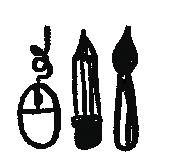




Healthy activities for everyday use
Here are some activities that you can use to help maintain a balance in your life:


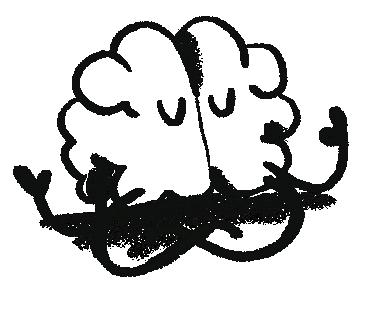



89F Lagan Road, Dublin Industrial Estate, Glasnevin, Dublin 11, Ireland, D11 F98N.
info@examcraftgroup.ie www.examcraftgroup.ie 01-8081494